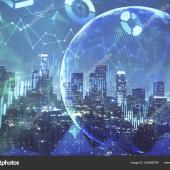Insights – NFT & Crypto: Fear or Fomo?
Are you valid in being skeptical about the crypto & NFT trend or is it that you just have no clue how to get on board? Capital Club Dubai hosted a panel discussion to get some straight facts about the real risks and rewards. Moderator, Hala Bou Alwan, Founder, HBA Consultancy & HAD Consultants spoke to guest experts, Hubertus Thonhauser, Founding Partner, Enabling Future, Saqr Ereiqat, Co-founder, Managing Partner, Riddermark, and Simon Hudson, Founder & CEO, Cheeze, Inc.
HBA: What is the confusion and fear that people have about this space?
SH: Let’s clarify some nomenclature first. NFT (Non-Fungible Token), in brief, is the compression of steps involved for transfer of ownership. Blockchain technology is the means by which all transactions are transparent and trackable and cannot be manipulated. Over time, NFT will become a domain and people will start using it to transfer assets.
HT: The NFT space still has some major challenges around the ownership issue that need to be solved. Currently, it is still unclear, for both the buyer and issuer, what are the copyrights associated with the creators’ artwork. The creator is not aware if he owns all the rights of the artwork that he is putting on the platform and often the buyer too is unsure about his rights. If you leave the NFT conversation aside, the question is, would you ever buy an asset if it’s unclear that you are really the owner and what you can do with this asset in the future? This problem is still unresolved on most platforms.
On the other hand, it is still early days, and it is better to view this more from the gamification of collectibles perspective, where the NFT space is working well. It is normal for new technologies to go through phases of glitches and have a hype aspect to it. However, in the near future, platforms will have proper KYC procedures for issuers, with legal documents about copyrights. Once the ownership issue becomes clearer, this space might become less of a gamble. In my view, one of the biggest risks at the moment is that most of the discussions are around prices and inflated valuations. The NFT space has become a US$7 billion industry and many of the asset prices are not justified.
SE: The issue isn’t technology related. You can mint an NFT in few minutes. It is very straightforward and simple. The challenge is on the legal side. Many recommend that the artwork/NFT needs to go into storage which then should be tied into the smart contract. How we use the technology will determine whether it is risky or not.
HBA: What are the potential opportunities?
SE: There are many opportunities, but it is important to educate yourselves properly. Don’t just google or listen to YouTube links. There are online courses by Princeton University, the World Economic Forum has put together an entire toolkit, and look at the report ‘The State of Blockchain in Q3’ by CB Insights, etc. The Blockchain and NFT space has seen an exponential increase of investment in the last couple of years, and it is ripe for correction. And now, the metaverse presents further opportunities by connecting many different elements of the digital ecosystem together. It is a convergence of multiple technologies.
HT: At Tezos Foundation, we have teamed up with various sports teams with the goal to digitize and leverage all content and increase fan engagement. It’s also a great way for these teams to monetize on their heritage content. Another example is from McLaren who recently launched an NFT on the Tezos blockchain with Sweet.io1 where you can create your own car. This is a gamification kind of thing, but it’s just the first step. Red Bull Racing is also one of our partners, looking to use their entire content, not only from Formula One, but also other sports, with the view to gamify and create a captive project to engage their audience. NFTs will redefine CRM (customer relationship management) in a certain way, so, it’s important for companies to embrace it and to not outsource it to third parties. They should learn to use the technology themselves to increase their customer relations. The metaverse is the convergence of the real and digital world and is redefining everything.
SH: NFTs allow users to have a digital flex of sorts, similar to what a Rolex or Tesla might represent to those in the real world. In the digital world, you can ‘showcase’ your wealth by being in a game like Decentraland or Sandbox or why Jay-Z has a profile picture of a punk and why Jimmy Fallon just bought an ape. People know there are only 10,000 apes and that the minimum price is a quarter million dollars now. I think that NFTs are going to be a huge part of the metaverse, because they predominantly act as access keys.
HBA: What are the latest investment trends and why?
SE: I’ve quit my full-time job and started a startup and am betting on digital assets. NFTs, for example, have seen a 6000 percent growth in 2020-2021, and investments in this space have seen a growth of 384 percent. About 31 new unicorns were created just this year. People are calling it the largest wealth transfer that history has ever seen. I strongly suggest you watch out for the ones that have real use cases. NFTs and gaming are seeing more traction, but also investigate the companies that enable games and metaverse spaces.
HT: The companies to look at are those that provide the infrastructure for the metaverse, NFTs, and blockchain in general. For example, there are products like ETFs and ETPs derivatives for different crypto assets. We’ve also invested in custodian solutions for cryptocurrencies and in building blocks for the metaverse and DeFi structures. However, not in DeFi platforms as yet because they are riskier. Like in most traditional investing thinking, I would recommend that you hold crypto assets for the long term and not worry every day when prices go up and down.
HBA: What needs more regulation?
SE: Innovation always moves faster than regulation. However, when there are financial assets, people need protection. Generally, technology is not regulated well. We are already using a lot of AI and data is not well protected. This is a huge risk. How do you legalize that you own a particular digital asset or not? There is a lack of regulation for the metaverse but there’s a fine line between stifling innovation and protecting the consumer.
HT: There are regulations in place for financial assets in the physical world, and these rules can be applied in the digital realm as well. Switzerland, for instance, is highly creative in applying existing assets regulatory
NFT Blockchain Digital Collectibles for Consumer and Entertainment Brands frameworks to the digital asset space. Regulations also create clarity, and this is imperative for this industry, which is still very nascent and in initial stages. However, NFTs don’t need to be regulated because in theory, an NFT is unique and not interchangeable. It is not regulated in the real world. All you need is clarity on the ownership. What are the legal rights associated with NFTs? However, when you start to fractionalize NFTs, that allow retail investors to buy a part of a particular asset, then this becomes a financial asset that has to be regulated and enforced.
HBA: To what extent do you see decentralization as a way to minimize risk or to provide opportunities?
HT: This is still an ongoing important intellectual exercise. How do you manage the claim to be a decentralized organization, though not an autonomous organization, and at the same time have clear structures and governance in place, and sometimes a centralized decision making? At this point, I would say that decentralization is good if there is governance in place. Take the example of platforms like Spotify, where the creators of its content have less freedom and benefits. If this was decentralized, it would be far more beneficial and fairer to the creators as well as consumers, with fewer middlemen. I’m advocating for decentralization, but with good governance. And, governments, obviously need to be centralized.
SH: A good example of a crossover with decentralization and good governance is the Flow blockchain, which is owned by a company called Dapper Labs. Essentially, you’re building what’s called a DAP, a decentralized app onto the Flow blockchain, but you’re ring fenced within your own ecosystem on that Flow blockchain. And they’ve done this right from the outset intentionally because once on the blockchain, nothing can be changed. Many companies – NBA, UFC, CNN, Genies, Cheeze, and 156 others are all building their own ecosystem on Flow.
Audience Question: If crypto and blockchain are decentralized, what would be the role of the regulator?
SE: In a sense you can compare this with the Internet, which has not had a lot of success in regard to regulations. Some jurisdictions, like Switzerland, Estonia and EU have done better than others, but here isn’t any one answer.
HT: I don’t think that blockchain needs to be regulated at all. What you need to regulate is the on-ramping stage – everything that is related to asset transactions that takes place on the blockchain. But the blockchain itself is a technology. It’s the Internet of values, which you cannot really regulate by definition.
SH: Its early days, and everyone is still trying to figure it out. We just raised our seed round, and investors are ready to write big cheques, but do acknowledge that the space is still very new, and they are not sure what is going on.
Audience Question: With so many different blockchains, tokens and coins, where does one start?
SH: It is best to learn by trying things out. I started with dabbling in NFT punks and such things as dogs, racoons, ponies and bananas, which did not make me any profits, but I learnt the process – such as obtaining a metamask wallet, learning what is a gas fee, etc. Just don’t get into ‘fomo’ mode. Instead, start slow and learn. Get a wallet, buy some Ethereum, go to Open Sea and just play around with a limited budget that you don’t mind losing. Look for the top 10 coins as a starting point and just monitor them. Don’t buy any, but just observe and see how drastically they change over a couple of weeks. And then on NFTs, go to CryptoSlam or CoinMarketCap and look at the top 10 NFT projects there and observe the transaction volumes. Learn, learn, learn.
HT: I would also suggest that you do not consider this as an investment. As we said at the beginning, this whole NFT thing is a game. It’s gamification of collectibles. In my view, it’s nothing to do with investing at this point. If your risk tolerance is high enough, just play around with it. If you think about investing in crypto, in my view, there is only Bitcoin. I would just start to read the Bitcoin white paper to understand how this whole philosophy is being designed and whole purpose behind it. There are a couple of other digital assets you might want to get involved in, but if you’re new to the space I would strongly recommend not to do any experiments. Just stick to the blue chip, which is Bitcoin. It’s highly adopted. It’s also getting more adopted on the institutional level. Large hedge funds now deploy part of their wealth in Bitcoin. You will see sovereign wealth funds doing the same. This is driving the prices. As you know, it’s a limited supply, and a growing demand. So, it’s a no brainer.
Audience Question: What are your thoughts on companies trying to push you in promoting your NFTs through their platforms?
SH: Your wallet is visible to everyone, so you will have people reaching out to you to push your NFT on social media, etc. It’s like a new kind of spamming with people minting an image of a billboard that would say, “If you need a graphic designer, this is my hourly rate. This is my email. This is my phone number.” And they just send it to your wallet as an airdrop.
So, then you receive this in your wallet on the blockchain, and it’s a way of contacting you. To deal with this, Open Sea had added a new tab called ‘hidden’ so that any new NFT that comes to you that’s been airdropped goes into this hidden tab, which is just like a spam/junk folder in emails.
Celebrities, obviously, want to get involved as well. For example, Quinton Tarantino announced that there would be Pulp Fiction NFTs, but Miramax sent him a ‘cease and desist’ order. He ignored them and decided to go ahead and mint the NFTs and is now being sued, because he does not own the copyrights of these things that he’s minting.
HT: I think the largest value will be captured in NFTs that are not just one-dimensional representations but have some sort of experience and utility value. Also, NFTs that can create network effects will gain value. The Bored Ape Yacht Club NFTs is a notable example of how you can create this network effect. It’s no longer just about the digital world and the metaverse. They are creating real world gatherings around the world of Bored Ape owners, and you can only participate if you can show on your wallet with a Bored Ape. They are planning some sort of Soho House type of club membership concept in the near future in the US. Then the NFT acquires a totally different dimension, becoming a building block to some sort of ownership.
SH: The Bored Ape Yacht Club opened in New York at a conference, and everybody was a walking around the city, and somebody would shout apes, and then everybody would make these ape noises. It was crazy to witness but you couldn’t get into these venues like Soho House without having a Bored Ape in your actual NFT wallet. And yeah, I just think it’s going to be a way to access members’ clubs and venues. I think it’s going to be quite valuable.
Audience Question: What are the differentiators between all the NFT marketplaces? Is technology or content going to decide the winner?
SE: Personally, I don’t think technology will be the differentiator. The ones that will differentiate themselves will be those that know how to tackle the ownership structure. You could then provide a certain functionality where you can define a contract. Think about yourself as the content creator and you can define that you will own 5% of this NFT in perpetuity.
SH: I think the technology gas fees versus no gas fees is a big pull and will play a part. For example, Ethereum is going through a big shift right now and the gas fees will start to come down. However, content will be the key differentiator.
HT: You can actually choose which blockchain you want to build upon, but at the end of the day, technology is a commodity. I think content is definitely the key differentiator, but the other important differentiator will be the kind of network effect you create. If you look at the Amazon, for instance, a famous marketplace in the non-crypto world, grew strong because of the network effects they created. They enabled businesses to become Amazon resellers, to create their own business on top of Amazon. And if you think about it in the crypto space, now Coinbase is launching its own marketplace. There will be this intersection between traditional crypto assets and NFTs. And then those platforms that allow creators to build their businesses and business models on top of their platform will succeed. And again, this is about network effects and how you can scale this within your community.



